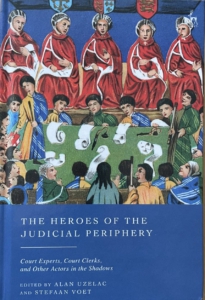Views
Australian Federal Court Backs India on Sovereign Immunity: Another Twist in the Devas v. India Saga
by Shantanu Kanade, Assistant Professor, Dispute Resolution, Jindal Global Law School, India
The Federal Court of Australia (“Federal Court”), in its recent judgement in the Republic of India v. CCDM Holdings, LLC[1] (“Judgement”), held that the Republic of India (“India”) was entitled to jurisdictional immunity from Australian Courts in proceedings seeking recognition and enforcement of foreign arbitral awards dealing with disputes arising from ‘non-commercial’ legal relationships. The Court’s judgment was rendered with respect to an appeal filed by India against an interlocutory judgement of a primary judge of the same court, rejecting India’s sovereign immunity claim.
Background of the Dispute
Three Mauritian entities of the Devas group (“Original Applicants”) had commenced arbitration proceedings in 2012 under the 1998 India-Mauritius BIT, impugning India’s actions with respect to an agreement for leasing of space spectrum capacity entered between Devas Multimedia Private Limited (an Indian company in which the Original Applicants held shares) and Antrix Corporation Limited (an Indian state-owned entity). In 2011, India’s Cabinet Committee on Security decided to annul the said agreement, citing an increased demand for allocation of spectrum towards meeting various military and public utility needs (“Annulment”). The arbitration proceedings that followed culminated in a jurisdiction and merits award in 2016[2] and a quantum award in 2020 (“Quantum Award”)[3]. The Original Applicants have since sought to enforce the Quantum Award against India in different jurisdictions, discussed here.[4]
Finder on the Supreme People’s Court’s Notice on Foreign State Immunity Procedures

The news about the Supreme People’s Court of the People’s Republic of China issuing the Notice on Procedural Matters Related to Civil Cases Involving Foreign State Immunity has been previously reported on this blog.
Following this significant development, Professor Susan Finder, a distinguished Scholar in Residence at Peking University School of Transnational Law, has kindly shared her insights on the matter. Her post was originally published on the Supreme People’s Court Monitor. Given its valuable contribution, we decided to repost it here.
Our sincerest thanks to Professor Susan Finder for her thoughtful analysis and generosity in sharing her thoughts. Read more
The Supreme People’s Court of the People’s Republic of China issued the Notice on Procedural Matters Related to Civil Cases Involving Foreign State Immunity
(This is written by Xiaoxuan Gu, a PhD student in School of Law, University of Macau)
The Foreign State Immunity Law of the People’s Republic of China (CFSIL) took effect on January 1, 2024.[i] To ensure its proper implementation and guide courts nationwide in lawfully and efficiently adjudicating civil cases involving foreign state immunity, the Supreme People’s Court (SPC) formulated supporting procedural rules. On March 26, 2025, the SPC issued the Notice on Procedural Matters Related to Civil Cases Involving Foreign State Immunity (hereinafter the “Notice”), which provides definitive guidance to courts at all levels in handling such novel foreign-related cases.
The Notice stipulates provisions on key procedural matters, including case acceptance criteria, centralized jurisdiction mechanisms, service of process rules, jurisdictional immunity review procedures, and protocols for obtaining evidentiary certifications from the Ministry of Foreign Affairs. Read more
News
The International Committee of the Singapore International Commercial Court: A Transnational Appeal Mechanism
Written by Yip Man (Professor of Law, Yong Pung How School of Law, Singapore Management University)
To bolster Singapore’s position as an international dispute resolution hub, the Singapore International Commercial Court (International Committee) Bill[1] was introduced in Parliament on 14 October 2024 to establish the International Committee of the Singapore International Commercial Court (the SICC), a standalone body, to hear prescribed civil appeals and related proceedings from prescribed foreign jurisdictions.[2] The Bill was passed by Parliament on 12 November 2024. The Singapore International Commercial Court (International Committee) Act 2024 (the “International Committee Act”) is uncommenced.[3] Read more
Conference: “The Next 25 Years of Private International Law: What Does the World Need?”, 23 June 2025 in Groningen
The Ulrik Huber Institute for Private International Law is delighted to announce a special one-day conference entitled:
The Next 25 Years of Private International Law: What Does the World Need?
This conference marks a significant occasion: the celebration of Professor Mathijs ten Wolde’s 25-year tenure as a professor and director of the Ulrik Huber Institute. In honour of his contribution to the field and his mentorship of generations of legal scholars, the event will bring together former PhD students and distinguished colleagues from across the globe to reflect on the future direction of private international law.
Key Themes Include:
- The role of private international law in a changing world;
- Evolving cross-border legal frameworks (e.g. EU Regulations and HccH Conventions);
- Regional vs. global harmonisation efforts;
- The impact of digitalisation;
- New frontiers in family, commercial, IP, transport and procedural law.
We warmly invite all scholars, practitioners and students with an interest in private international law to join us for this day of dialogue and celebration. More information, including the conference programme, is available via the following link: https://www.rug.nl/rechten/agenda/2025/the-next-25-years
New Book and Seminar Heroes of the Judicial Periphery
 Last month the book The Heroes of the Judicial Periphery: Court Experts, Court Clerks, and Other Actors in the Shadows, edited by Alan Uzelac and Stefaan Voet (Hart/Bloomsbury Publising, 2025) was published. The book highlights the role of perhaps less prominent, but nevertheless important actors in (international) judicial procedures from a national, comparative and/or international perspective.
Last month the book The Heroes of the Judicial Periphery: Court Experts, Court Clerks, and Other Actors in the Shadows, edited by Alan Uzelac and Stefaan Voet (Hart/Bloomsbury Publising, 2025) was published. The book highlights the role of perhaps less prominent, but nevertheless important actors in (international) judicial procedures from a national, comparative and/or international perspective.
The European Civil Justice Centre (Erasmus School of Law) hosts a seminar in collaboration with the editors to launch the book on 4th July 2025 from 10-12 CEST.
Discussions on civil justice mostly focus on procedural rules, and the role of courts, parties and lawyers. This book addresses other actors that are often overlooked in academic and policy debates. It assesses the role of court experts, court clerks and court staff, and other actors on the ‘judicial periphery’ who play an important role and often co-determine the pace, outcome, and tone of the judicial process.
The knowledge and skills of experts may be indispensable at times, but it is among the most expensive, complicated and time-consuming means of evidence. The judges adjudicate, but where experts are involved in the process, they have a decisive impact on the outcome of litigation. Therefore, a principal focus of the book is on experts and how they are appointed, managed, and remunerated across Europe and the world.
The editors will discuss topical issues highlighting these ‘actors in the shadows’ and key experts will present their ideas based on the key findings of the book chapters, followed by discussion.
Registration for free here (hosted through Eventbrite)
Speakers & program:
10.00 Opening and welcome: Xandra Kramer
10.05 Alan Uzelac & Stefaan Voet – Heroes of the Judicial Periphery
10.15 Juraj Brozovic – The Case of Judicial Advisors in Croatia
10.30 Camilla Bernt – Expert Evidence in Custody Disputes and Child Protection Cases
10.50 Discussion
11.05 Michael Stürner – Experts on Foreign Law in German Civil Procedure
11.30 Adriani Dori & Xandra Kramer – The Role of Third-Party Funders in the Shadow of the Procedure
11.45 Discussion


